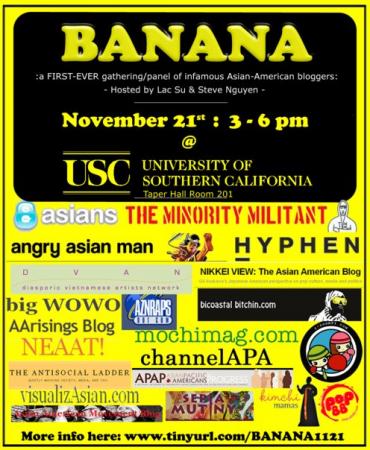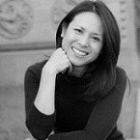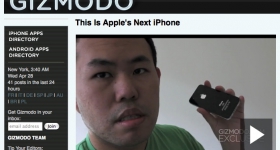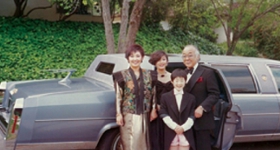 Let me start by saying that, whatever the shortcomings of the day, the idea to bring so many Asian American bloggers into one room was foolproof. It was a pleasure to put faces to names, to compare people's embodied selves to their online personas. And as I mentioned at the event, the fact that we responded to the summons from Lac and Steve (the organizers) in such force, attested to how timely this call to meet really was.
Let me start by saying that, whatever the shortcomings of the day, the idea to bring so many Asian American bloggers into one room was foolproof. It was a pleasure to put faces to names, to compare people's embodied selves to their online personas. And as I mentioned at the event, the fact that we responded to the summons from Lac and Steve (the organizers) in such force, attested to how timely this call to meet really was.
Write-ups of the event since, though, have been troubling to me. Aside from Jon Yang's very balanced account (thank you, Jon), I find that my fellow bloggers have opted for a kind of resolute cheerleading, such that our team can do no wrong, and to be critical is to speak treason. Freedom fries, anyone?
I won't dignify a certain panelist's behavior with further discussion here, because what concerns me far more than one man's ill conduct is what seems to be an unpremeditated agreement to protect it: In the face of what can at best be deemed unprofessional and disrespectful behavior, several of my colleagues opt not only to avoid calling a spade a spade, but seem to overcompensate by singling out the inebriated for kudos:
"I especially loved meeting [him]... because I respect his blog so much" (Nikkeiview); "last, but of course not least..." (bigWOWO)
This closing of ranks extends to chastising those who do criticize the drinker's character based on his behavior. But it's not clear to me what we as adults and (self-designated) representatives of the Asian American community are to be held accountable for, if not for our behavior. While I wouldn't necessarily echo Oiyan's (APAs for Progress) response to Nikkeiview in its entirety, she makes some very good points, and bigWOWO's demand that she apologize gives me highly unpleasant flashbacks of Bush-era cries of unAmericanism.
I have to confess to feeling some great discomfort myself, with voicing public criticism of the first AsAm bloggers' gathering. I fear making Hyphen a lightening rod for hostility among our ranks-closing compatriots. I fear alienating the organizers in their footage-editing power -- for though they have my respect and gratitude for having their hearts in the right places, I do think they bit off more than they could chew. (Please forgive overuse of euphemistic idioms; see earlier statement of discomfort.)
But in the aftermath of the event, I wonder if we have what it takes to move away from eulogies and toward postmortems? Because it's the postmortems that will help us to figure out how to do better.
Or is this conversation going to continue to emblematize what I fear for Asian American media, as it becomes increasingly reliant on blogs, and loses its journalistic anchors? Will we as bloggers feel so little bound to objectivity and critical analysis? So beholden to the butterers of bread? So biased in our allegiances that we become a new yellow journalism?
I believe our readership has a right to know.
After the Banana: Reflections on the AsAm Blogosphere
Categories:
Contributor:
erin K Ninh
contributing editor & blogger
erin Khue Ninh is a former blog editor and onetime publisher of Hyphen, who won't seem to go away. She now teaches literature in the Department of Asian American Studies at UC Santa Barbara. Aside from Hyphen, erin believes in recycling, Planned Parenthood, and Type A first-borns.
- Read more about After the Banana: Reflections on the AsAm Blogosphere
- Google+
- Forward
- Print HTML
- 5 comments










Comments